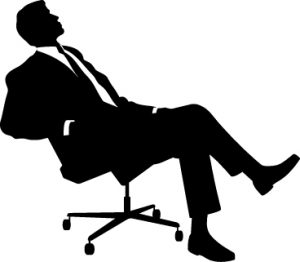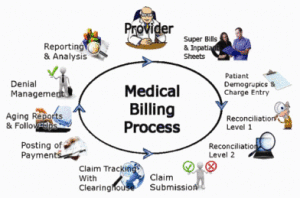 In this day and age, we do a lot of sitting. If you are one of the millions of Americans with an office job, you are sitting for several hours throughout the day. However, office jobs are not the only culprit. Those who travel for extended periods of time are forced to remain seated on airplanes. Those who enjoy watching television may find themselves starting a Netflix show then, hours later, being riveted in the same position. A couple years back, evidence was uncovered concerning the harmful effects of sitting. Remaining seated was found to increase risk of heart disease and diabetes. This new information brought on a standing desk craze, however, it has been found that overusing standing desks is also not good for health. So, what is good for your health? A recently published study found that fidgeting while seated may be your best bet.
In this day and age, we do a lot of sitting. If you are one of the millions of Americans with an office job, you are sitting for several hours throughout the day. However, office jobs are not the only culprit. Those who travel for extended periods of time are forced to remain seated on airplanes. Those who enjoy watching television may find themselves starting a Netflix show then, hours later, being riveted in the same position. A couple years back, evidence was uncovered concerning the harmful effects of sitting. Remaining seated was found to increase risk of heart disease and diabetes. This new information brought on a standing desk craze, however, it has been found that overusing standing desks is also not good for health. So, what is good for your health? A recently published study found that fidgeting while seated may be your best bet.
One of the immediate dangers of sitting for extended periods of time concern the arteries in the leg. Sitting restricts the amount of blood flowing to the legs, which heightens risk of cardiovascular disease. Researchers at the University of Missouri wanted to know if there was a way to offset those negative effects when standing is not an option. Their reasoning was that fidgeting would encourage increased blood flow in the leg. They did not expect it to completely solve the arterial problem, but they hoped it would at least help.
The researchers tested the leg vascular function of 11 men and women. The subjects were made to sit for three hours. Each participant kept one leg still throughout the entire study, and tapped the other one at specified intervals. The subjects averaged about 250 foot movements per minute. At the conclusion of three hours, researchers measured the amount of blood flow in each leg of each subject.
Sure enough, this fidgeting increased blood flow in the legs significantly, to a point where it could help stave off cardiovascular disease. Toe tapping was indeed enough to increase vascular health. This is groundbreaking information in a society in which, a lot of the time, people do not have the option to take breaks to stand up continuously during a long period of sitting.
The researchers want to make it clear, however, that fidgeting should not be used as a substitute for standing and walking around when breaks can be taken. Walking or standing has more overall cardiovascular benefits, and is therefore better for you in the long run. However, fidgeting is a good alternative in situations in which standing is not permitted. As they say, any sort of movement is better than none at all.

 The update to our medical codes comes as a result of recent changes to the U.S. healthcare system. Though the patient should be left largely unaffected; hospitals, insurance companies, and nursing homes have all needed to modernize their coding procedures to evolve with the system. In order to get paid, medical providers must present an accurate depiction of what the patient experienced. Because of this change, 14,000 medical codes ballooned to an unprecedented 68,000.
The update to our medical codes comes as a result of recent changes to the U.S. healthcare system. Though the patient should be left largely unaffected; hospitals, insurance companies, and nursing homes have all needed to modernize their coding procedures to evolve with the system. In order to get paid, medical providers must present an accurate depiction of what the patient experienced. Because of this change, 14,000 medical codes ballooned to an unprecedented 68,000.